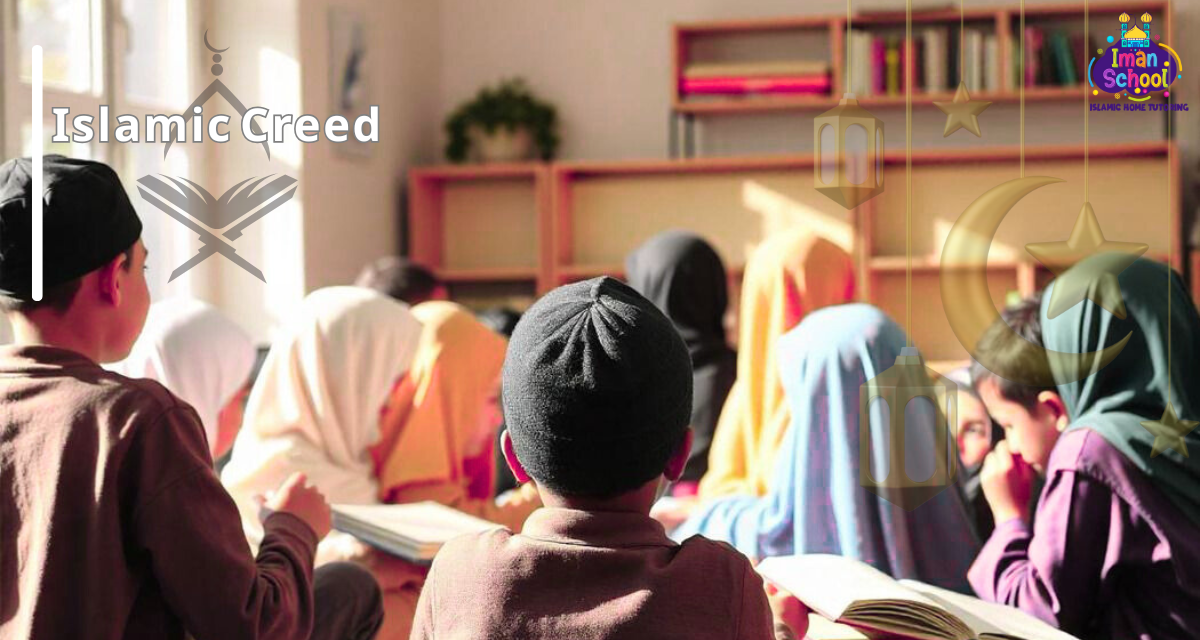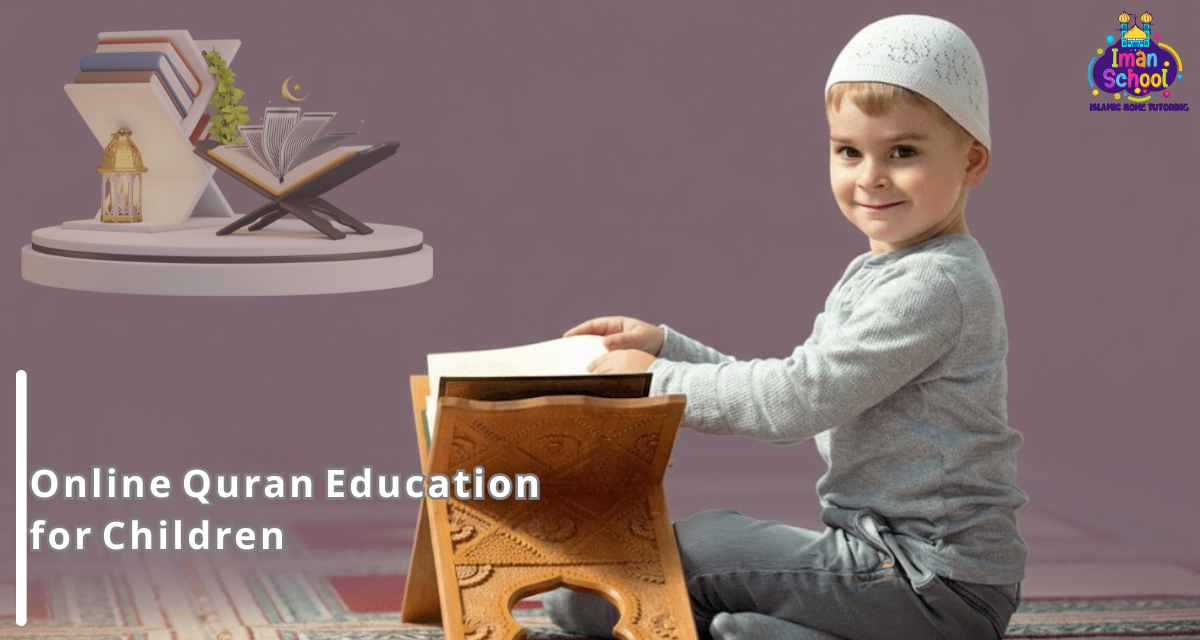At the very core of Islam lies a set of fundamental beliefs that form the bedrock of a Muslim's faith and worldview. This is the Islamic Creed, or "Aqidah" in Arabic. Far from being mere theological concepts, these beliefs serve as the spiritual and intellectual compass that guides every aspect of a Muslim's life, from their understanding of God and the universe to their moral conduct and ultimate destiny. A clear and authentic Islamic Creed is essential for a true connection with Allah, ensuring that one's worship and actions are built upon sound and unwavering conviction. Without a firm grounding in these core tenets, the edifice of one's faith remains vulnerable and incomplete.
What is Islamic Creed: Linguistic and Terminological Definition
The term "Islamic Creed" is a direct translation of the Arabic word "Aqidah" (عقيدة). Understanding its meaning is the first step in grasping its profound significance.
Linguistic Meaning of Aqidah
Linguistically, "Aqidah" is derived from the Arabic root 'A-Q-D (ع-ق-د), which denotes concepts of binding, tying firmly, knotting, or contracting. It implies something that is held firmly, believed with conviction, and cannot be easily undone or broken. Thus, the linguistic meaning of "aqidah meaning in Islam" conveys a sense of unshakeable conviction and firm belief.
Terminological Definition of Islamic Creed
In Islamic terminology, "Aqidah" refers to the fundamental beliefs and convictions of the heart that a Muslim holds firmly, without doubt or hesitation. These are the matters of faith that a person believes in their heart, professes with their tongue, and acts upon with their limbs. It is the sum total of those beliefs that define a Muslim's understanding of Allah, His attributes, His messengers, His books, the unseen, and the Day of Judgment.
The body of these beliefs, whether referred to as Islamic Creed in English or Islamic Creed in Arabic, constitutes the foundational principles of the religion. Many valuable resources, often compiled into an "Islamic creed book", available as a "creed of Islam pdf", or even offered through an Aqidah course, meticulously detail these beliefs.

The Importance of Creed in Islam
The significance of Islamic Creed cannot be overstated. It is the very essence of Islam, underpinning all other aspects of the religion.
The Foundation of Religion
The Islamic Creed serves as the absolute foundation upon which all Islamic practices, laws (Shariah), and moral principles (Akhlaq) are built. Just as a building requires a solid foundation to stand firm, a Muslim's faith and actions require a correct and sound Aqidah. Without it, worship becomes mere ritual, and good deeds lose their ultimate purpose. It is the primary distinction between a believer and a non-believer.
Guiding Principles for Life and Purpose
A clear Islamic Creed provides a Muslim with a coherent worldview, answering fundamental questions about existence: Who created us? Why are we here? What is our purpose? Where are we going after death? This clarity brings peace of mind, strong moral direction, and resilience in the face of life's challenges. It shapes one's intentions, thoughts, and actions, ensuring they align with divine will. This makes it a crucial aspect of "the fundamentals of Islamic creed" for every Muslim.
Ensuring Correct Worship and Actions
Only a sound Islamic Creed can ensure that one's worship (Ibadah) is truly accepted by Allah. For instance, belief in Tawhid (the Oneness of Allah) is essential for avoiding Shirk (associating partners with Allah), which is the greatest sin. Understanding the attributes of Allah affects how one prays, supplicates, and puts their trust in Him.
Therefore, correctness in belief directly impacts the validity and sincerity of one's religious practices. This deep interrelation is key to understanding Aqeedah Islamic Creed.
Characteristics of Islamic Creed
The Islamic Creed possesses unique characteristics that highlight its divine origin, universal applicability, and comprehensive nature.
Divine Origin: From Quran and Sunnah
Unlike man-made ideologies, Islamic Creed is divinely revealed, deriving its principles directly from the Holy Quran and the authentic Sunnah (teachings and practices) of Prophet Muhammad (peace be upon him). This divine source ensures its truthfulness, immutability, and universality, making it free from human error, biases, or limitations.
Clarity and Simplicity
The core tenets of Islamic Creed are clear, straightforward, and accessible to everyone, regardless of intellectual capacity. While theological discussions can be deep, the fundamental beliefs are simple enough for a child to grasp, yet profound enough to satisfy the most inquisitive minds. This clarity ensures that the path to belief is open to all.
Comprehensiveness
Islamic Creed encompasses all essential aspects of belief: from the nature of God to the unseen world (angels, Jinn), divine books, prophets, the Day of Judgment, and destiny. It provides a complete framework for understanding existence, addressing both worldly life and the Hereafter.
Consistency and Unchangeability
The principles of Islamic Creed are consistent and do not contradict each other. They remain unchanged throughout time and place, as they are based on eternal divine truths. This steadfastness provides stability and certainty for believers across generations. This consistent creed is meticulously preserved in The Aqida of Ahl al-Sunna wa'l-Jama'a, which represents the mainstream, authentic Islamic theological tradition, often detailed in an "Islamic creed book" or even a "creed of Islam pdf".
What are the Basic Sources of Islamic Creed?
To properly understand and adhere to the Islamic Creed, one must refer to its authentic and primary sources. These are the bedrock of all Islamic knowledge.
1- The Holy Quran
The Quran is the verbatim word of Allah, revealed to Prophet Muhammad (peace be upon him). It is the foremost and most authoritative source of Islamic Creed. The Quran outlines the oneness of Allah, His attributes, the nature of prophethood, the reality of the Day of Judgment, and principles of divine decree. Every fundamental belief in Islam is directly affirmed or alluded to in the Quran.
2- The Sunnah of Prophet Muhammad (peace be upon him)
The Sunnah comprises the sayings, actions, and tacit approvals of Prophet Muhammad (peace be upon him). It serves as an essential explanation and practical application of the Quranic principles. The Sunnah elucidates the details of the Islamic Creed found in the Quran, providing clarity on concepts like the attributes of Allah, the nature of angels, and the events of the Day of Judgment. Authentic Hadith collections are vital for understanding the complete picture of the Aqeedah Islamic Creed.
3- Consensus (Ijma') of the Early Righteous Scholars (Salaf)
The consensus (Ijma') of the early generations of Muslims, particularly the Companions of the Prophet (Sahaba) and their direct successors, is also a significant source for establishing matters of Islamic Creed. When these early scholars, who were closest to the revelation, unanimously agreed on a matter of belief, it carries immense authority. This consensus ensures that the understanding of "the fundamentals of Islamic creed" remains consistent with the original teachings.
4- Sound Intellect (as subservient to Revelation)
While revelation is supreme, sound human intellect plays a role in understanding and affirming the truth of the Islamic Creed. The Quran often encourages reflection and contemplation of the universe as signs of Allah's existence and power. However, intellect is subservient to revelation; it confirms and comprehends, but does not invent or alter, the articles of faith.

What Topics Does Creed Address in Islam?
The Islamic Creed comprehensively covers various essential topics, often summarized as the Pillars of Islamic Creed or the Six Articles of Faith. These pillars form the core beliefs that every Muslim must affirm.
1- Belief in Allah (Tawhid)
This is the most fundamental aspect of Islamic Creed. It encompasses belief in Allah's absolute Oneness (Tawhid), His unique attributes (like being the Creator, Sustainer, All-Knowing, All-Powerful), and His beautiful Names. This pillar rejects any form of polytheism or associating partners with Allah.
2- Belief in Angels
This includes believing in the existence of angels as unseen beings created by Allah from light, who perform various divine duties (e.g., carrying messages, recording deeds, guarding).
3- Belief in Divine Books
Muslims believe that Allah revealed holy books to various prophets throughout history, including the Torah to Moses, the Psalms to David, the Gospel to Jesus, and the final revelation, the Holy Quran, to Prophet Muhammad (peace be upon him). The Quran is believed to be the only perfectly preserved divine book.
4- Belief in Prophets and Messengers
This pillar entails believing in all the prophets and messengers sent by Allah to guide humanity, from Adam to Noah, Abraham, Moses, Jesus, and finally, Muhammad (peace be upon him), who is the Seal of the Prophets. Muslims believe in their truthfulness, their divine mission, and that they conveyed Allah's message faithfully.
5- Belief in the Day of Judgment
This crucial aspect of Islamic Creed includes belief in the reality of the afterlife, resurrection after death, the reckoning of deeds, the bridge of Sirat, and the ultimate destinations of Heaven (Jannah) and Hell (Jahannam). This belief instills a strong sense of accountability and motivates ethical behavior.
6- Belief in Divine Decree (Qadar)
This involves believing that everything that occurs in the universe, both good and bad, happens by Allah's knowledge, will, and decree, while affirming human free will and responsibility for their choices. This pillar offers peace and contentment, knowing that everything is ultimately in Allah's hands.
While these six are the primary articles, theological discussions within the Aqeedah Islamic Creed can also delve into sub-topics and even discuss different "types of Aqeedah in Islam" referring to various schools of thought or interpretations of these core tenets that arose historically, though The Aqida of Ahl al-Sunna wa'l-Jama'a remains the most widely accepted and orthodox view.
Also read about: Islamic Ethics
Online Islamic Creed Teaching School
Understanding the nuances of Islamic Creed from authentic sources is paramount for every Muslim. While numerous resources exist, learning directly from qualified scholars is the most effective way to ensure accuracy and depth. This is where a specialized institution like Iman School plays a vital role.
At Iman School, we are dedicated to teaching the authentic Islamic Creed based on the Quran, the Sunnah, and the methodology of The Aqida of Ahl al-Sunna wa'l-Jama'a. Our online school provides an accessible and structured environment for individuals globally to learn "the fundamentals of Islamic creed" from certified and experienced instructors.
We understand the importance of clarity and depth in this subject, and our curriculum is designed to systematically cover all the pillars of Islamic creed, ensuring a strong, unshakeable foundation for your faith. Whether you're looking for an Islamic creed book to study from or seeking a comprehensive online learning experience, Iman School offers expert guidance to deepen your understanding of Aqeedah Islamic Creed.
What is the Difference Between Creed and Shariah?
While deeply interconnected, Islamic Creed (Aqidah) and Shariah represent two distinct yet inseparable components of Islam.
Creed (Aqidah): The Realm of Beliefs
Islamic Creed deals with beliefs (I'tiqadat). It pertains to the internal convictions of the heart concerning Allah, His oneness, His attributes, angels, books, prophets, the Day of Judgment, and divine decree. It is the theoretical framework, the 'what to believe.' Aqidah is about conviction and certainty regarding the unseen and the ultimate truths of existence.
Shariah: The Realm of Practices and Laws
Shariah, on the other hand, refers to the practical laws and regulations that govern a Muslim's actions and interactions. It encompasses acts of worship (like prayer, fasting, charity, pilgrimage) and dealings with others (like marriage, finance, criminal law, etiquette). Shariah dictates 'how to act' based on the beliefs established by Aqidah.
Interconnectedness
The relationship between Islamic Creed and Shariah is symbiotic. A sound Aqidah is the prerequisite for valid and meaningful Shariah observance. Correct belief inspires sincere action. Conversely, practicing Shariah reinforces and strengthens one's Aqidah. For example, belief in Allah (Aqidah) leads to performing prayer (Shariah), and performing prayer reinforces belief in Allah.
They are two sides of the same coin: faith (Iman) manifested in belief (Aqidah) and action (Shariah). This holistic approach contributes to "the Islamic creed and its history" as a complete way of life.
Islamic Beliefs and Creed – What Every Muslim Should Know
The Islamic Creed stands as the spiritual bedrock of a Muslim's life, offering clarity, purpose, and unwavering conviction. From the absolute oneness of Allah (Tawhid) to the belief in the Day of Judgment and divine decree, these fundamental tenets provide a comprehensive framework for understanding existence and navigating life's complexities. Rooted in divine revelation and exemplified by the Prophet Muhammad (peace be upon him), this creed is clear, consistent, and universally applicable.
The legacy of the Islamic creed and its history is one of profound intellectual depth and spiritual guidance that has shaped civilizations. Embracing and understanding this creed is not merely an academic exercise; it is the journey towards a life lived in conscious awareness of Allah, striving for righteousness, and preparing for ultimate accountability. A firm Islamic Creed is the believer's greatest treasure, safeguarding their heart, guiding their actions, and illuminating their path to eternal success.




